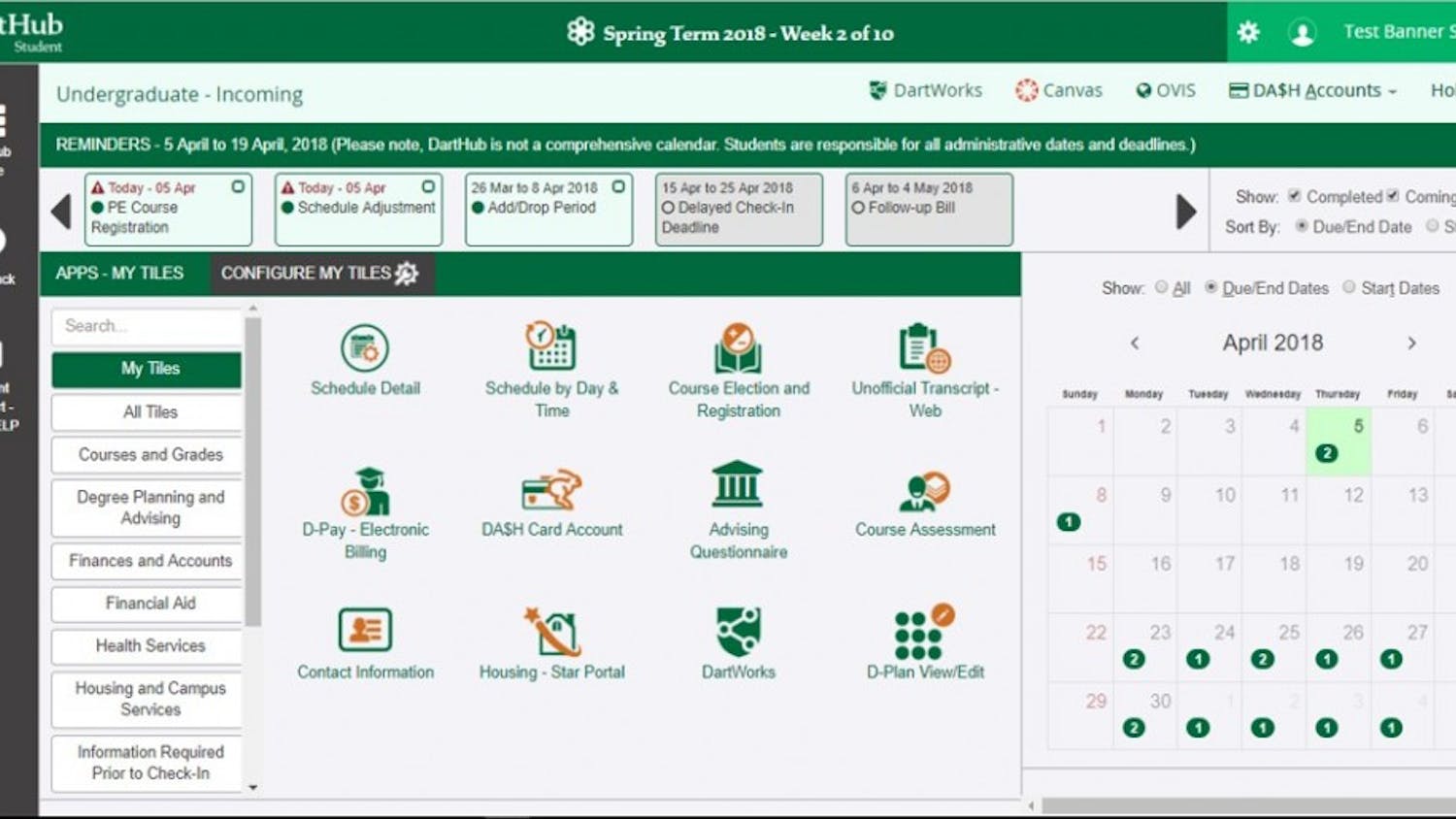Starting this term, Dartmouth students will now have the option to use their preferred name, pronouns and gender identity on DartHub, the College’s student information website. Under Dartmouth’s new Chosen Name and Identity initiative, a student’s chosen names, pronouns and gender identity will be used across campus resources, except in situations where the College is required to use students’ legal names.
According to registrar Meredith Braz, the College’s senior administration began discussing the need to give students autonomy in their identity on campus starting in 2006, but the College lacked the online infrastructure to support the changes. Dartmouth did allow transgender and gender non-binary students to request that their IDs and directory listings include their preferred name starting in 2007. When DartHub replaced the online system Banner last year, the College formed a policy group to discuss the details and to move forward with the initiative, according to Braz.
Under the new policy, any student, not just trans and non-binary students, can change their names and pronouns, such as international students who go by Anglicized names, as well as individuals who may go by nicknames or middle names.
“It’s super exciting as someone who goes by my middle name to not have to explain that I don’t actually go by my name to every professor and different clubs,” said Thomas Clark ’22. “It’s so empowering and makes my life so much easier.”
The number of students utilizing this new online feature has been steady thus far, with at least one person a day changing their name through the system, according to Braz.
To prevent the possibility that students might not take the policy seriously — considering that the process lacks an approval process — the College reserves the right for deans to deny any request. Braz noted, however, that fellow institutions that have implemented similar policies encounter this situation rarely.
Braz added that students are responsible for understanding the specifics of the new policy.
The process of enacting this campus-wide initiative included cooperation with offices across campus. The Information, Technology & Consulting team was originally involved in order to support the initiative’s online infrastructure, and the DALI Lab began helping with the project over a year ago. Director of student and academic systems Samuel Cavallaro noted that the DALI Lab’s help was a good fit, since the goal of the project was to implement a “system for students designed by students.”
The DALI Lab’s group of around a dozen students communicated with the ITC team throughout the process, and the ITC team served as a liaison to different departments on campus, according to Cavallaro.
Additionally, within the ITC, a team of people across several departments assembled for a “Chosen Name Roadshow” from January to April 2019, according to Cavallaro. Team members individually met with and presented the new system to over 100 different groups across campus. By meeting with the various actors on campus that would be affected by the change, the team was able to iterate through the different versions of the interface and eventually come to a solution that was “clear and intuitive,” academic applications developer William Cowen said.
The process of working directly with ITC allowed students to feel more “heard and catered to,” said Mira Ram ’20, who was a developer on the Chosen Name and Identity DALI project team.
With this new policy, Dartmouth joins over 180 universities across the country that allow students to use a preferred name and 20 universities that allow students to select their chosen pronouns.
The registrar’s office at Dartmouth hopes to create the same opportunity for other populations on campus that do not yet have the option, such as faculty and staff, according to Braz.
“It’ll take some time for Dartmouth to fully understand what it means to various populations to be able to use their chosen name, but pretty soon I’d like to see it where this is considered something that nobody talks about anymore, because this is the way things are,” Braz said.
Mira Ram is a member of The Dartmouth staff.



